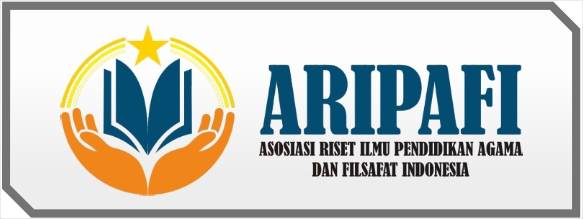Filosofis Kehidupan Marga Silalahi dalam Suku Batak Terhadap Pancasila Sila Pertama Ketuhanan Yang Maha Esa
DOI:
https://doi.org/10.59581/garuda.v2i2.3258Keywords:
Life Philosophy, Silalahi Clan, Belief in One Supreme GodAbstract
This study aims to analyze the life philosophy of the Silalahi clan within the Batak ethnic group and its relation to the First Principle of Pancasila, namely, Belief in One Supreme God. The research utilizes a qualitative descriptive method. This study explores the religious and cultural values upheld by the Silalahi clan and how these values align with the principle of Belief in One Supreme God. The findings reveal that the Silalahi clan holds a life worldview deeply grounded in strong religious and spiritual faith. These values are reflected through various traditional ceremonies, religious rituals, and life principles that emphasize harmony and piety towards God. Therefore, there is a substantial correlation between the life philosophy of the Silalahi clan and the First Principle of Pancasila, demonstrating how traditional values can reinforce national identity.
References
Armawi, A. (2008). Kearifan Lokal Batak Toba Dalihan Na Tolu Dan Good Governance Dalam Birokrasi Publik. Jurnal Filsafat, 18(2), 157-166.
Bhagaskoro, P., Pasopati, R. U., & Syarifuddin, S. (2019). Pancasila Dalam Interaksi Kearifan Lokal Dan Ideologi Transnasional. Jurnal Inovasi Ilmu Sosial Dan Politik (JISoP), 1(2), 112-132.
Febriansyah, F. I. (2017). Keadilan Berdasarkan Pancasila Sebagai Dasar Filosofis Dan Ideologis Bangsa. DiH: Jurnal Ilmu Hukum, 13(25), 368780.
Gule, Y., & Surbakti, E. P. (2021). Eco-Teosentris: Studi Eco-Teologi dan Kearifan Lokal Dalam Masyarakat Batak Toba. Jurnal Teologi Berita Hidup, 4(1), 100-116.
Hutahaean, A. N. P. S., & Agustina, W. (2020). Peran Filosofi Budaya Batak Toba Dalam Dunia Pendidikan. Etnoreflika: Jurnal Sosial Dan Budaya, 9(3), 313-324.
Sihombing, A. A. (2018). Mengenal Budaya Batak Toba Melalui Falsafah †œDalihan Na Toluâ€(Perspektif Kohesi dan Kerukunan). Jurnal Lektur Keagamaan, 16(2), 347-371.
Silalahi, U. (2014). Pemerintahan (harajaon) dan birokrasi tradisional masyarakat Toba. Bina Media Perintis.
Siregar, D., & Gulo, Y. (2020). Eksistensi Parmalim Mempertahankan Adat dan Budaya Batak Toba di Era Modern The existence of Parmalim Defends Toba Batak Customs and Culture in the Modern Era. Anthropos, 6(1), 41-51.
Oktania, A., Alnaya, D., Sirait, J. A., Sinurat, N. A., Siahaan, P. G., & Purba, N. R. (2023). Aktualisasi Nilai Ketuhanan yang Maha Esa dan Persatuan Indonesia dalam Masyarakat Batak Toba dengan Penganut Agama Berbeda di Jalan Yossudarso Lingkungan 2 Kelurahan Kota Bangun Kecamatan Medan Deli. Jurnal Pendidikan Tambusai, 7(3), 24904-24911.
Downloads
Published
How to Cite
Issue
Section
License
Copyright (c) 2024 Garuda: Jurnal Pendidikan Kewarganegaraan Dan Filsafat

This work is licensed under a Creative Commons Attribution-ShareAlike 4.0 International License.













